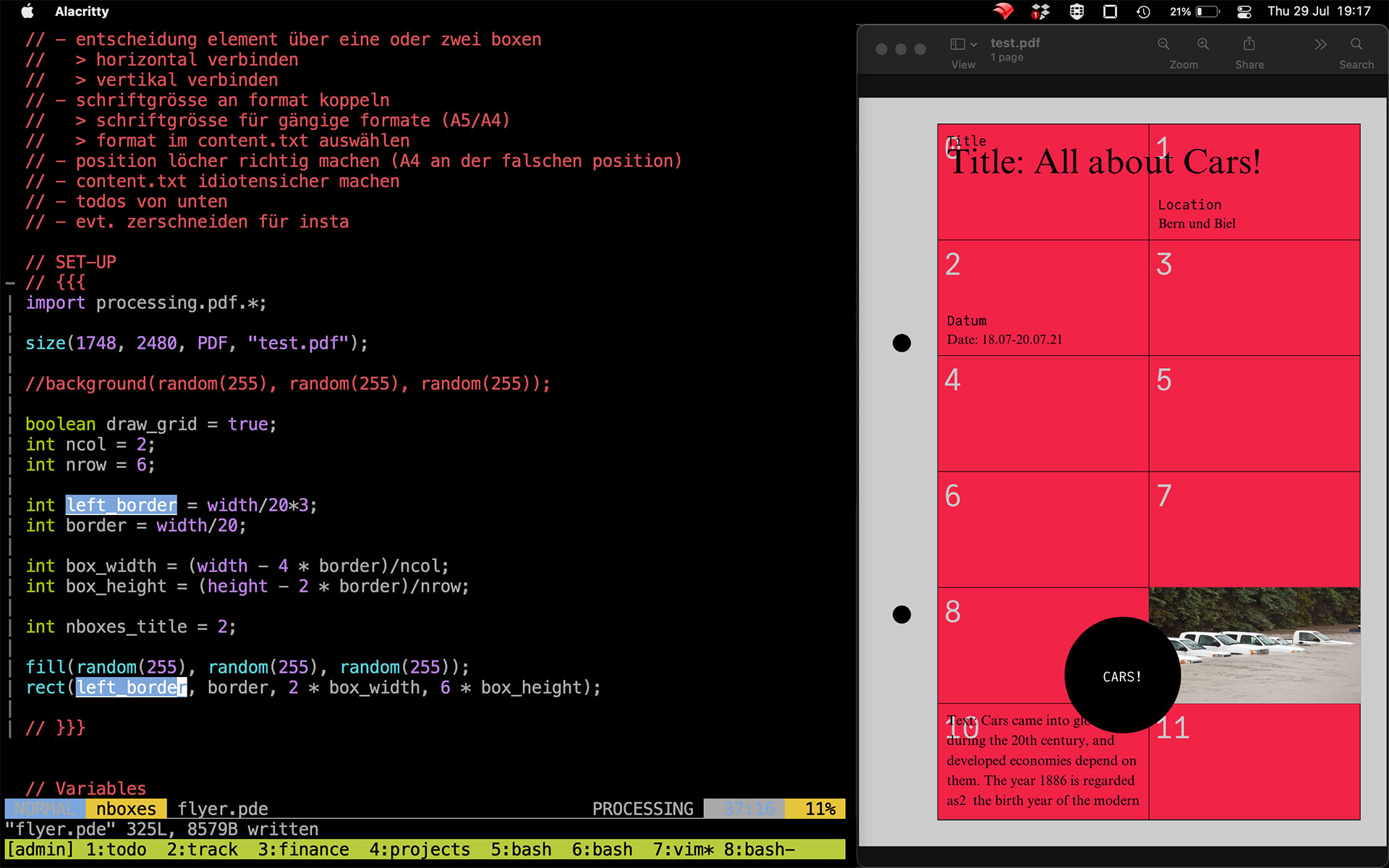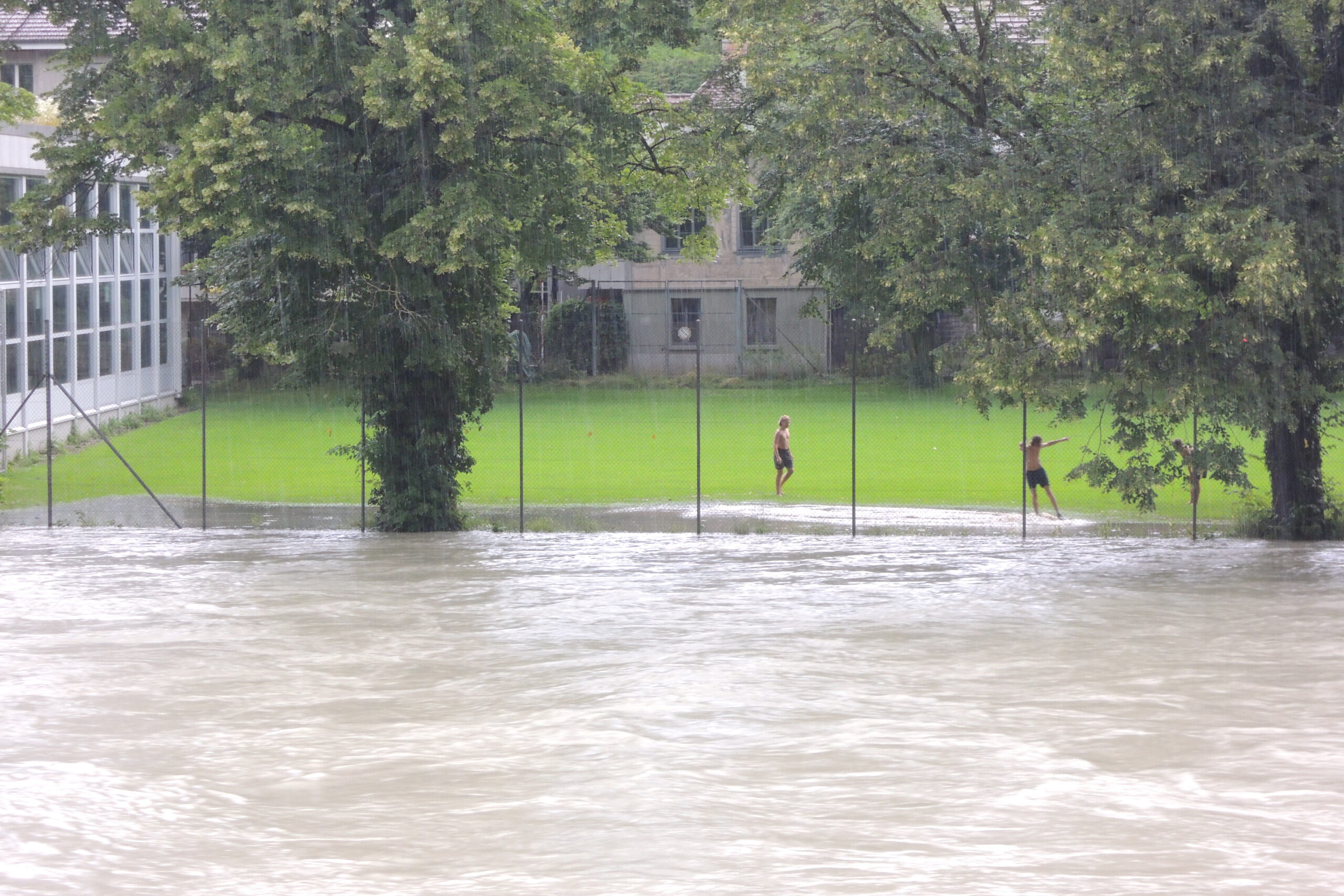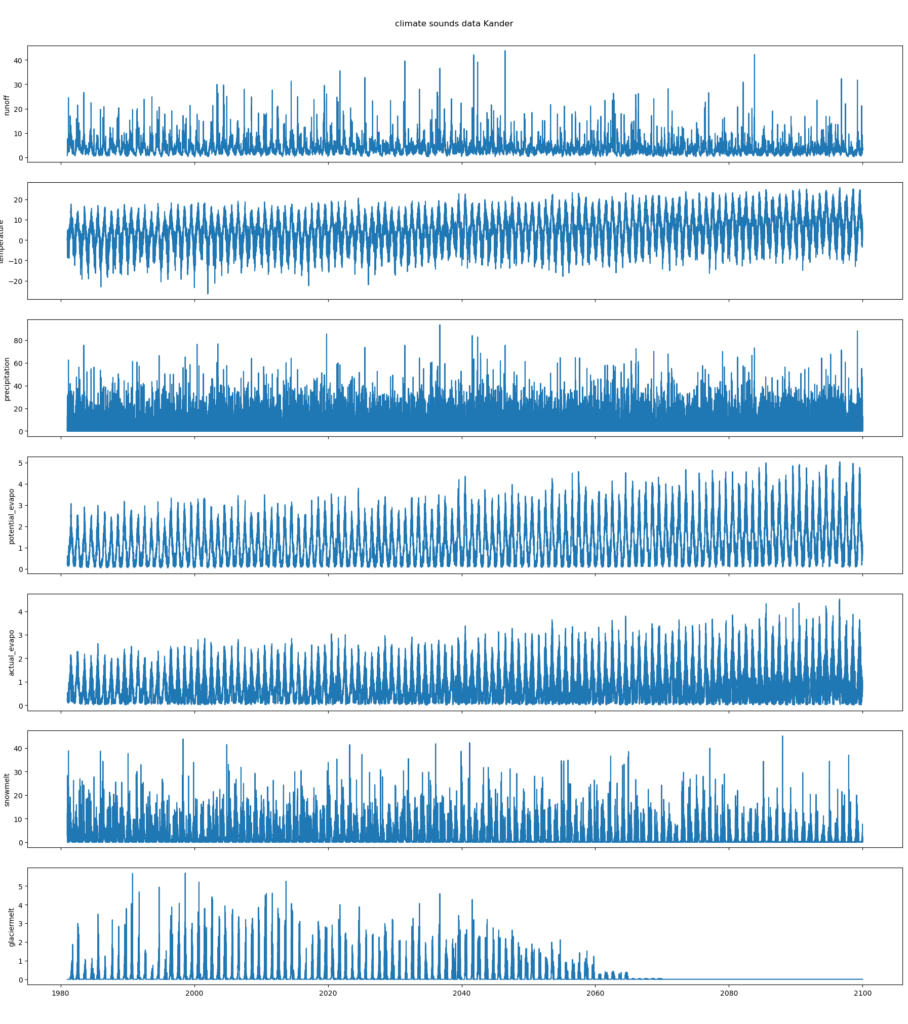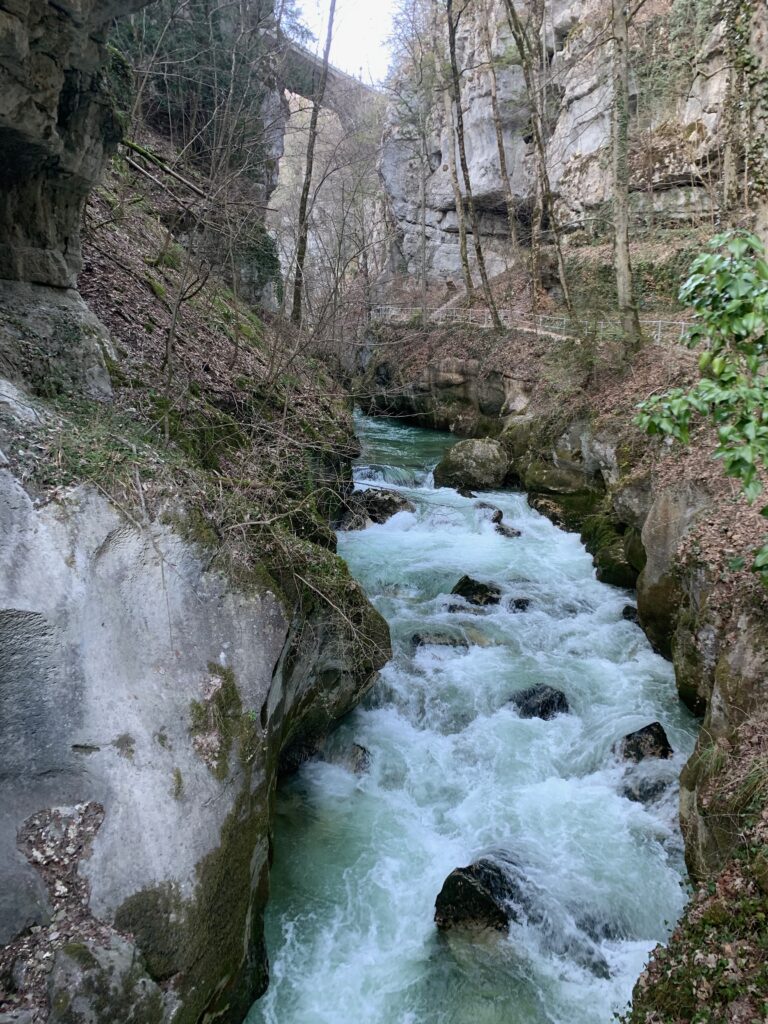Climate change and its effects, such as on glacier melt, drought, and extreme flood events, are mostly shown today with tabular or graphical representations of data. What the data show, however, remains interpretable with conventional visualization methods mostly only for scientists. Here we would like to break new ground in presenting environmental data from observations and the continuation of these data strands into the future using climate simulations as an alternative. Environmental data such as temperature with its diurnal variations, river levels, precipitation with its high variability, or data on snow and glacier melt all have their specific signatures. These signatures are being altered by climate change. A fundamental new way of representing these signals of change in environmental data due to climate change would be to algorithmically process the data into auditory signals. Auditory processing should allow listeners without a background in climate science to auditively perceive the action of natural processes in a river basin. In addition, the changes in these processes are to be made “audible” through changes in the auditory signals. In this way, climate change, or rather its effects on the water cycle in Switzerland, should become “tangible”.
motile
Climate change and its effects, such as on glacier melt, drought, and extreme flood events, are mostly shown today with tabular or graphical representations of data. What the data show, however, remains interpretable with conventional visualization methods mostly only for scientists. Here we would like to break new ground in presenting environmental data from observations and the continuation of these data strands into the future using climate simulations as an alternative. Environmental data such as temperature with its diurnal variations, river levels, precipitation with its high variability, or data on snow and glacier melt all have their specific signatures. These signatures are being altered by climate change. A fundamental new way of representing these signals of change in environmental data due to climate change would be to algorithmically process the data into auditory signals. Auditory processing should allow listeners without a background in climate science to auditively perceive the action of natural processes in a river basin. In addition, the changes in these processes are to be made “audible” through changes in the auditory signals. In this way, climate change, or rather its effects on the water cycle in Switzerland, should become “tangible”.
motile
c/o
Geographisches Institut
Universität Bern
Hallerstrasse 12
3012 Bern
info@motile.ch
-
17.05.2022,16:00h
Flooded Cars
Location
Waisenhausplatz, BernTime
17.05.2022,16:00h -
31.05.2022,17:00h
Car 1
Location
Nägeligasse, BernTime
31.05.2022,17:00h -
21.06.2022,17:00h
Car 2
Location
Schwarztorstrasse, BernTime
21.06.2022,17:00h -
23.06.2022,18:30h
Vernissage Flooded Cars
Location
Meeting point: Meret-Oppenheim-Brunnen, Waisenhausplatz, BernTime
23.06.2022,18:30h -
03.10.2022,17:00h
Car 3
Location
Lorrainestrasse, BernTime
03.10.2022,17:00h -
06.05.2023,15:30h
Dance-Performance
Location
Bern, Maybrunnen, PostgasseTime
06.05.2023,15:30h
17.05.2022,16:00h
Flooded Cars
31.05.2022,17:00h
Car 1
21.06.2022,17:00h
Car 2
23.06.2022,18:30h
Vernissage Flooded Cars
An informative city walk, organised by motile: with presentations and conversations about co-benefits of landscape/settlement ecology and microclimate, about art in times of climate change and the power of collective action.
With aperitif afterwards.
Referents: Andreas Zischg, Kasper Ammann, Nicolas Fuhrimann
Musical input: Raphael Heggendorn, Violoncello – Bach und Pflanzen
Duration of the event approx. 2 hours
Location
Meeting point: Meret-Oppenheim-Brunnen, Waisenhausplatz, Bern03.10.2022,17:00h
Car 3
06.05.2023,15:30h
Dance-Performance
… from the piece “A Seat at the Table 2.0”. Who has a seat at the table? Who has a say, who doesn’t? Do we need new forms of participation?
Earle Garnette and Anna Chiedza Spörri show with some dancers short choreographies from their piece “A Seat at the Table 2.0” by Rena Brandeberger.
With hip hop grooves and smooth moves Gifti Tekako, Riatssan Srikanthan, Haezel Kate Börlin, Pierre Elie Boma-Yabu, Livia Beck, Celia Buholzer, Besnik Zallaj and Jil Steiger provide excellent entertainment.
When: Planting Day of «Greenest Alley in Switzerland» 06.05.2023, 15.30
Where: Maybrunnen, Postgasse, Bern
The entire piece will be shown from 27.07.- 03.08.2023 at the Bern Rose Garden.







